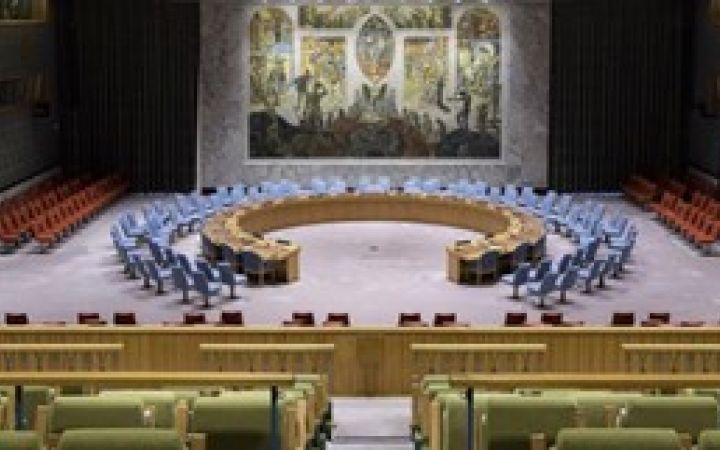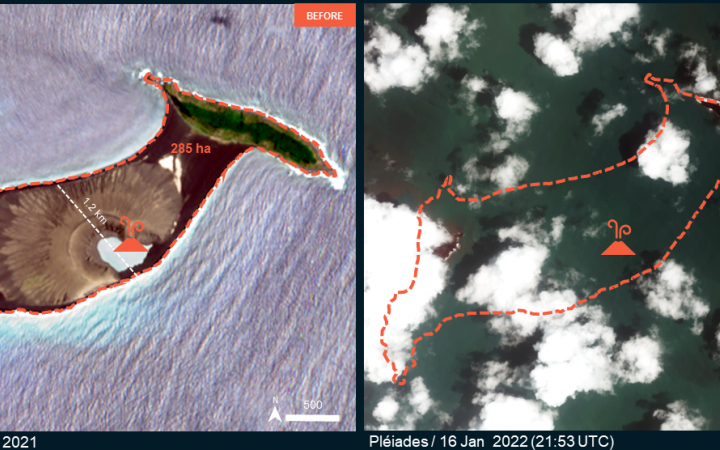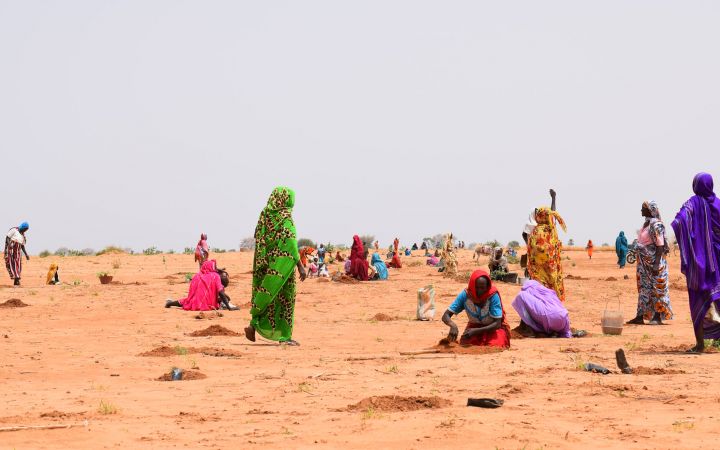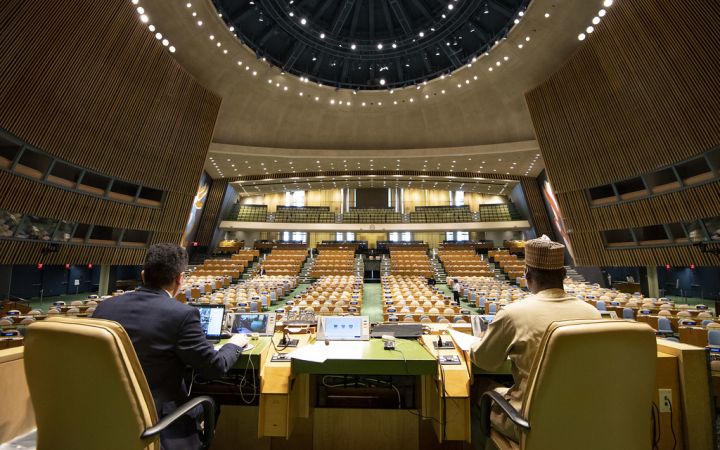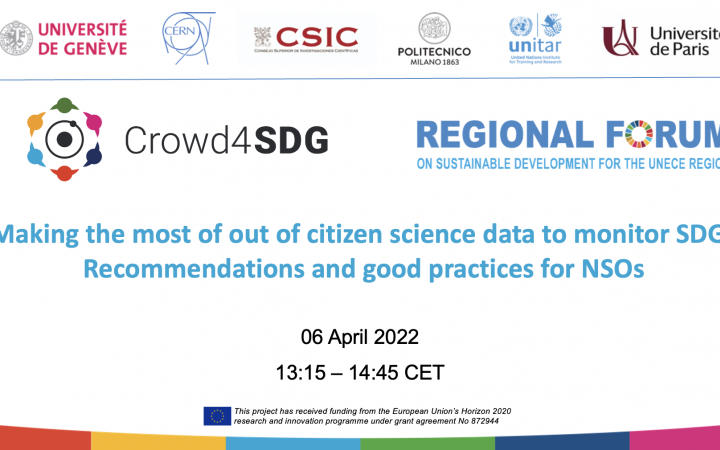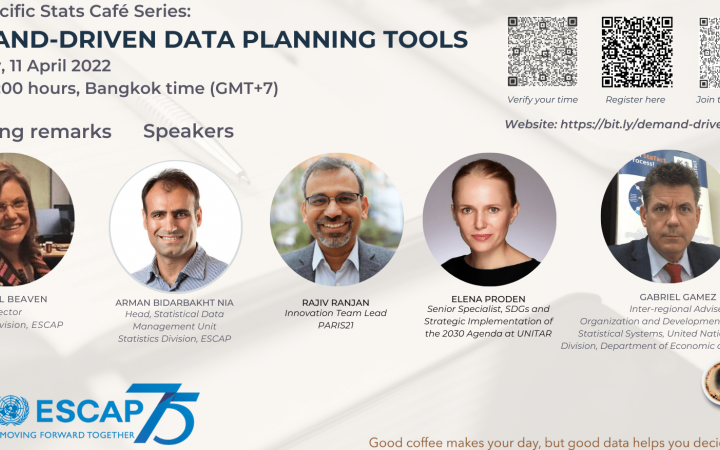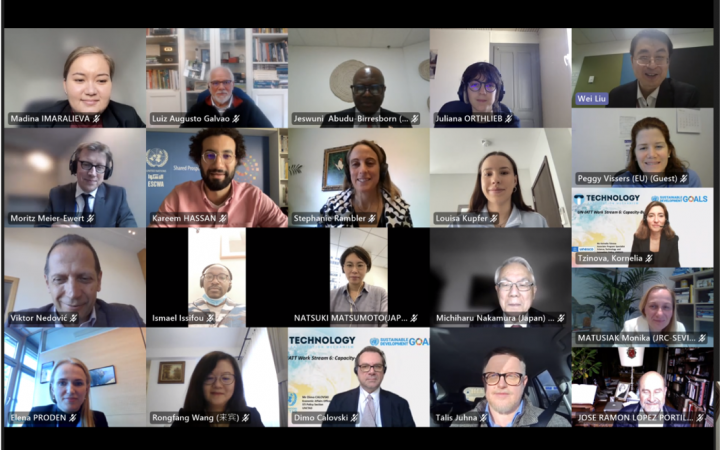Displaying 41 - 50 of 157
8 June 2022
Based in the political core of the UN, UNITAR New York Office (NYO) continues to be a source to the permanent missions and the New York diplomatic community. Through meaningful contributions to the implementation of the 2030 General Assembly Agenda and the Sustainable Development Goals (SDGs), the programs and events bring public awareness, education and training, and the enhancement of global decision-making to public policy officials.
7 June 2022
8 June 2022, Geneva, Switzerland - On Saturday 15th January, the ongoing volcanic eruption of Hunga Tonga-Hunga Ha’apai triggered a tsunami across the Pacific. Karen Melnychuck and her sister Laura Jarosz contacted the United Nations Satellite Centre (UNOSAT) with a plea to help them with any information on the island where their mother lived.
7 June 2022
A new self-paced Massive Open Online Course "Develop and Implement Science, Technology, and Innovation for SDGs Roadmaps - Level I" was developed by UNDESA and UNITAR to support UN Member States in developing and implementing STI for SDGs Roadmaps as well as attracting global assistance in doing so.
7 June 2022
7 June 2022, Geneva, Switzerland - Climate change is increasingly affecting peace and security across the globe, and factors, such as gender and social inequalities, are catalyzing the effects of this dire trend. How can one help prevent climate change from further disrupting peace and security? Found out the answer in this new free-of-charge e-course!
7 June 2022
In today’s increasingly globalized and complex world, multilateral dialogue and cooperation is constantly becoming more essential to promote peace and drive progress. At the same time, government corruption continues to grow unchecked in places around the world. As such, the nexus and interrelation between Diplomacy and Anti-Corruption efforts is now more important than ever. In this regard, the United Nations Institute for Training and Research (UNITAR) has partnered with the International Anti-Corruption Academy (IACA) to launch the one-of-a-kind Master’s in Anti-Corruption and Diplomacy (MACD), a modular postgraduate academic degree conducted over the course of 18 months.
3 June 2022
6 April 2022 - This virtual side event organized by UNITAR, as part of the Crowd4SDG project, brought together passionate stakeholders involved with Citizen Science Data (CSD). Speakers shared their experience working with citizen scientists, as well as enabling the use of CSD by National Statistical Offices and Systems (NSOs and NSSs).
3 June 2022
11 April 2022 - Policymakers and Data producers tend to work in silos, disconnected from one another, preventing them to benefit from the synergies and benefits collaborative efforts would bring, especially to advance the SDGs and ensure No One is Left Behind.
To address this disconnect, UNESCAP, PARIS21 and UNITAR respectively developed EPIC, ADAPT and StaTact, three free-standing and complementary data-planning tools intervening at different stages of the data production process and concerned with multi-stakeholder collaboration.
To address this disconnect, UNESCAP, PARIS21 and UNITAR respectively developed EPIC, ADAPT and StaTact, three free-standing and complementary data-planning tools intervening at different stages of the data production process and concerned with multi-stakeholder collaboration.
12 May 2022
On the 5th of April 2022 - As an important input to the 7th STI Forum, to celebrate the launch of the Massive Open Online Course Develop and Implement Science Technology and Innovation for SDG Roadmaps - Level 1, developed by UNITAR and UNDESA's Division of Sustainable Development Goals (UN DESA/DSDG), partners and stakeholders gathered online and discussed its significance, journey and the road ahead for the United Nations Inter-agency Task Team on Science, Technology and Innovation for the SDGs (IATT).
8 April 2022
8 April 2022, Geneva, Switzerland – The Executive Certificate in Global Business Leadership, created in partnership between UNITAR and Babson College Executive Education, has been designed with working professionals and aspiring entrepreneurs in mind. Therefore, the number of modules has been reduced from six to four to allow for greater flexibility for those who need to juggle many obligations in their personal and professional lives. UNITAR and Babson College are also delighted to announce that the fee of the Executive Certificate has been significantly reduced accordingly, and that a special further discount is available for participants coming from least developed regions.
17 March 2022
UN SDG:Learn is very glad to announce the launching of the Second Series of the UNSDGLearn Blog, "SMEs and the Implementation of the SDGs".
This Series will shine a light on Small and Mediums Enterprises (SMEs), their realities and the challenges they face as well as their philosophies, level of involvement and opportunities in regards to the achievement of the Sustainable Development Goals (SDGs).
This Series will shine a light on Small and Mediums Enterprises (SMEs), their realities and the challenges they face as well as their philosophies, level of involvement and opportunities in regards to the achievement of the Sustainable Development Goals (SDGs).


